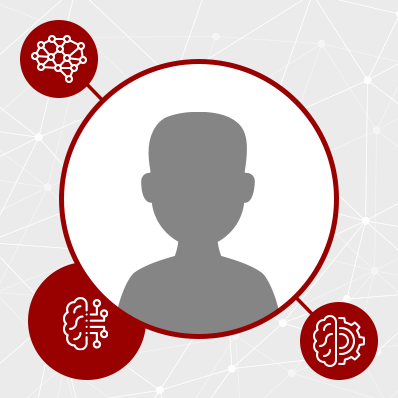Coricelli, Giorgio
Professor of Economics and Psychology
We study human behaviors emerging from the interplay of cognitive and emotional systems. Our research agenda includes two main projects. The first one concerns the role of emotions in decision making, and the second is aimed at investigating the relational complexity in social interaction. Our objective is to apply robust methods and findings from behavioral decision theory to study the brain structures that contribute to forming judgments and decisions, both in an individual and a social context.
Dias, Brian George
Associate Professor of Developmental Neuroscience & Neurogenetics
Our research seeks to understand not only how mammalian neurobiology, physiology and reproductive biology is impacted by psychosocial and nutritional stress but also how parental legacies of such stressors influence offspring. To achieve this understanding, we employ a lifespan approach to study how stressors affect: sperm/egg/embryo (pre-conceptional stress), the gestating fetus (in utero stress), and the developing infant (post-natal stress). Our experimental approaches include assaying learning-memory-motivation, virus-mediated manipulation of neuronal activity and gene expression, (epi)genetic profiling of cells, in vivo fiber photometry and induced pluripotent stem cells (iPSCs).
Dickman, Dion
Associate Professor of Biological Sciences
Synaptic development, function, and plasticity in Drosophila.
Eagleson, Kathie
Associate Professor of Research Pediatrics and Neurology
Research projects investigate the development of brain architecture that controls social-emotional behavior and learning, and how early life experiences impact neurodevelopment. Genetic and environmental factors that regulate circuit and synapse formation are studied at the molecular and circuit level, using single cell and bulk RNA sequencing, viral circuit tracing, and multiplex in-situ hybridization. Preclinical mouse models use exposure to early adverse experiences to study age- and sex- specific mitochondrial adaptations that impact the emergence of cognitive, social and emotional behaviors across the lifespan.
Eich, Teal
Associate Professor of Gerontology
My research centers on understanding sex differences in the cognitive and neural mechanisms underlying learning and memory changes in healthy and pathological aging, with a particular focus on Alzheimer’s disease. My lab uses a combination of cognitive, biobehavioral (biomarkers, endocrine profiles), and neuroimaging (structural, spectroscopic, and functional) to understand memory and executive function in normal aging, and seeks to translate these empirical and theoretical findings to model cognitive disorders in psychopathologic and neurodegenerative diseases, where high level cognitive failures can be particularly deleterious both for the individual and society at large.








